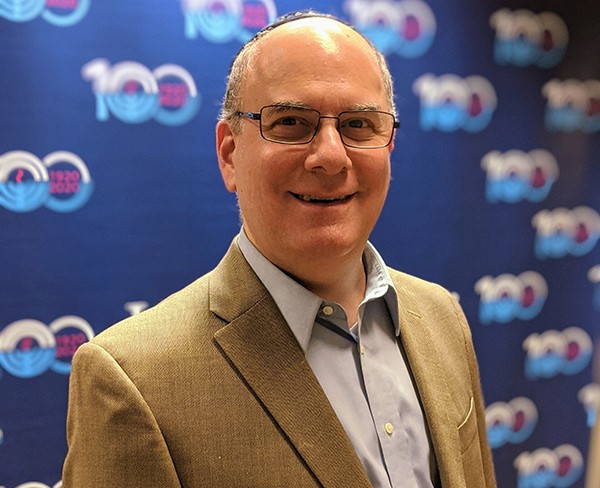
BY RABBI BARRY COHEN
Right now, we have plenty of reasons to feel stressed, anxious and afraid. One of the main sources of these emotions is the event looming on the Nov. 3 horizon – election day. Of note, the American Psychological Association conducted a “Stress in America” survey and learned that 56 percent identified the 2020 election as a significant stressor and source of anxiety.
Before I go further, let’s agree on definitions of words people use to describe how they feel. “Anxiety” is a prolonged state of apprehension brought on by uncertainty about future threats. “Fear” is an acute response to an immediate or identifiable threat. Often these emotions are lumped together. Fear-mongering campaign ads and news reports amplify our already anxious state. The result is a one-two punch that undercuts our sense of security.
This election season, we also need to make a distinction between “anxiety” and “worry.” The former is an emotion. The latter is a type of thinking that is affected by anxiety as we struggle to resolve the issue or issues that make us anxious. Worrying makes sense when we have control over what makes us anxious. However, worrying can become counterproductive when we cannot control what makes us anxious.
One of the greatest challenges posed by this election is that, individually, we have little control over its outcome. At the same time, the implications of the election will greatly affect our personal well-being, happiness, safety and security.
Emotionally, spiritually and physically, we can feel the results of this cocktail of anxiety, fear and dysfunctional worry. We can feel confused, sad, irritable and overwhelmed. Our muscles can become tense. We can have tension headaches and stomach aches. We can suffer from insomnia, elevated blood pressure and a suppressed immune system.
Though this is not found in the DSM-5 (the Diagnostic and Statistical Manual of Mental Disorders), many of us collectively are experiencing “election stress disorder.” We see those who do not agree with us politically as an enemy and as an existential threat to our democracy.
Two weeks ago, I fell into the trap of watching too much CNN and MSNBC. I was averaging 3 hours a day. I became agitated, on edge, irritable and afraid. This affected my spiritual and psychological health and my connection with my children. I decided to go cold turkey and instead get my news from trusted websites. Almost overnight, I began to feel better.
I need to have a plan of how to cope during the final days leading up to the election, during the possible days of determining the results, and during potential grieving based on who wins and who loses.
Between now and Nov. 3, getting a good night’s sleep is a priority. I will also set aside time to exercise and meditate. I need to be willing to feel any and every emotion rather than bury them deep inside. Writing about them will prove useful.
If my candidates do not win, I must prepare myself to grieve. I will limit the time I devote to politics. In the process, I will not allow my mind to run away and engage in catastrophic thinking. I can spend less time connecting with technology and more time connecting with others. I can listen to my favorite music. Sometimes the best medicine is the right song on the right album by the right artist. Finally, I can reflect on the power of gratitude, which will improve every aspect of my health.
Oh, and I may make plans to immigrate to New Zealand. (Just kidding….)
Rabbi Barry Cohen is Jewish Community Chaplain of the Greater Portland Area.

0Comments
Add Comment